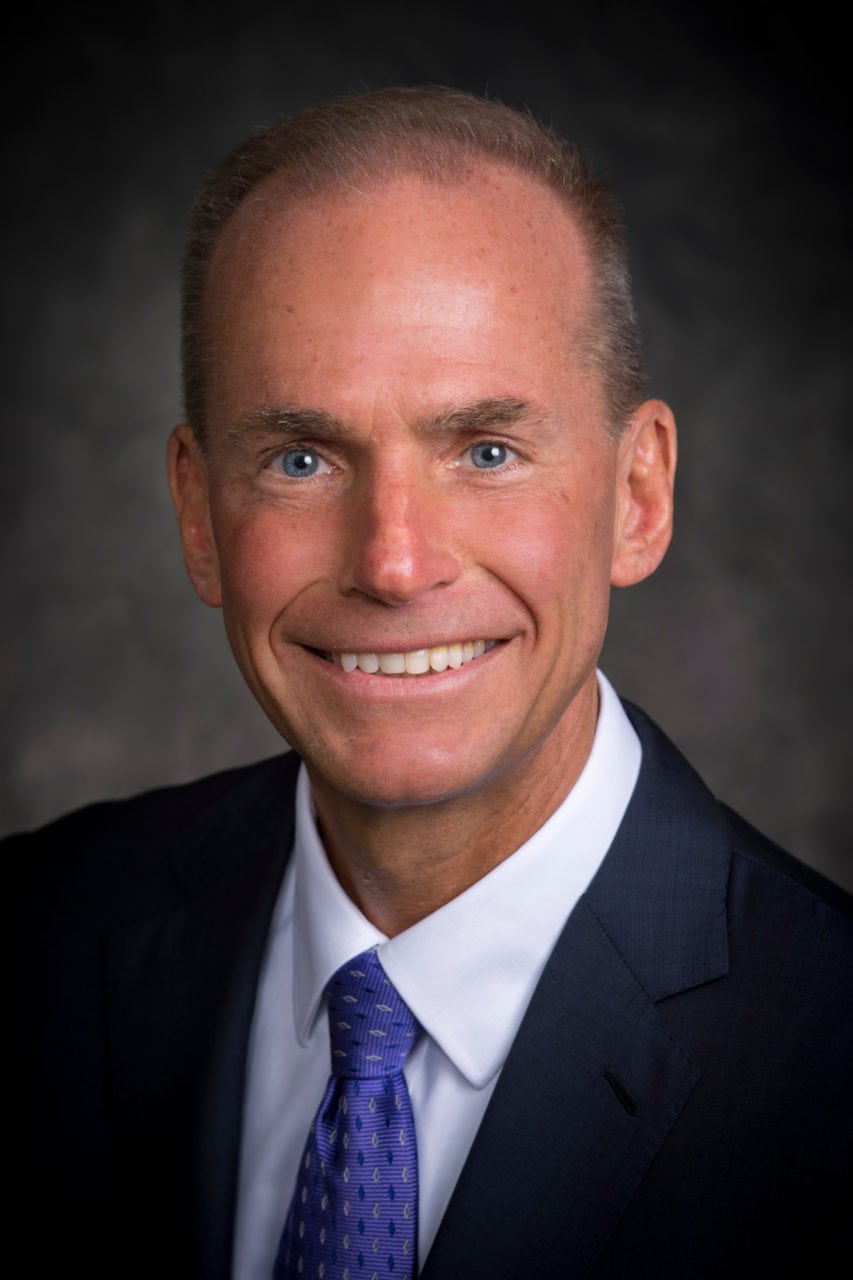
Boeing Chairman, CEO and President Dennis Muilenburg. (Boeing)
Boeing sees a big opportunity in the Chinese market as the aerospace industry grows in the next 20 years, and as one of the biggest manufacturing companies in America, it is involved in the tense trade talks between China and the United States.
“We’re very engaged in that broader dialogue on China,” Boeing CEO Dennis Muilenburg said Thursday in Washington, D.C., speaking at the U.S. Chamber of Commerce Aviation Summit. “We’re doing well there, but it’s important that we have a productive relationship.”
Boeing recently set up a joint venture facility to finish 737s in China. The company predicts that 43,000 new aircraft will be needed globally in the next two decades, and nearly one-fifth of those will be needed in China, Muilenburg said, where the company estimates that four in five of the country’s 1.4 billion people have never taken a flight.
“They need airlift capacity to grow their economy. All of that makes jobs in the U.S.; we build those planes … There’s a lot of common interest there. There’s still some hard work to do, but we’re going to strongly support finding a common solution.”
President Trump has spent the last year levying tariffs against Chinese imports in an attempt to gain leverage over the country and reach more advantageous trade agreements, while punishing China for allowing Chinese companies to engage in intellectual property theft.
Boeing has “a voice at the table,” according to Muilenburg, who advocated for free and open trade.
The executive said he understands the use of tariffs “as a trade tool,” but that “in the intermediate, they can be very difficult” for American companies that have to pay higher rates to do business. Boeing has a global supply chain and does business around the world.
According to Muilenburg, the aerospace industry ran an $80 billion trade surplus last year, so one of the most effective ways to work toward balancing the U.S. trade deficit would be to invest in aviation. He also strongly advocated for reauthorization of the Export-Import Bank of the United States to make deals with foreign entities more attractive. Notably, the EXIM Bank has a history of supporting purchases of many Boeing aircraft.
Muilenburg also touched on the industry-wide staffing shortage, which was a common topic throughout the day. Boeing projects nearly 1.5 million combined pilots and aircraft maintenance technicians needed over the next 20 years.
“The pipeline is short right now,” he said.
He did announce a $3 million Boeing investment in a scholarship program at Embry-Riddle Aeronautical University, focused on those two job fields and increasing the opportunities for underrepresented populations in aviation.
27 percent of engineering majors are women, according to Embry-Riddle Chancellor John Watret in an earlier panel, but a relatively small portion go into aviation, and 40 percent of women in engineering either do not go into related fields or leave those fields soon after — what is called the leaky pipeline. Further, less than 5 percent of commercial pilots and mechanics are women, according to Southwest Senior Vice President and Chief Information Officer Kathleen Wayton. The numbers are similarly low across racial minority groups, according to FAA data on pilots.
Finding a way to get those groups into aviation is crucial to addressing the staffing shortage the aviation industry is facing, Watret said.
“We have to look at some of the underrepresented groups to bring them in there,” he said. “Many of the states now, in terms of high school graduates, are minority-majority … It starts in elementary school.”